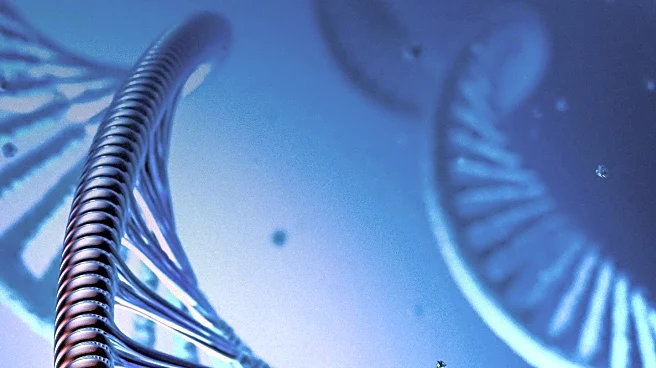What is the story about?
What's Happening?
Jaylynn Johnson, a 24-year-old mother and nursing student from Indiana, has been sharing her journey on social media after her son, Atlas, was diagnosed with a rare genetic condition. Initially, Johnson noticed unusual eye movements in her newborn, which led to a diagnosis of Nystagmus, a condition characterized by involuntary eye movements. Further genetic testing revealed Atlas has Oculocutaneous Albinism Type 1, a disorder caused by a lack of melanin, resulting in white hair, pale skin, and light-colored eyes. This condition can lead to vision problems, although Atlas is not blind, his future visual capabilities remain uncertain. Johnson has been documenting her experiences on TikTok, where she has received support from other parents facing similar challenges.
Why It's Important?
The story highlights the importance of community support and awareness for families dealing with rare genetic disorders. Johnson's experience underscores the challenges parents face when their children are diagnosed with conditions that may affect their quality of life. By sharing her journey, Johnson has fostered a supportive online community, providing hope and connection to others in similar situations. This case also brings attention to the need for medical research and resources to better understand and manage rare genetic conditions like albinism, which affects thousands in the U.S.
What's Next?
Johnson and her family are preparing to face the challenges ahead, including potential visual impairments for Atlas. As he grows, further assessments will be needed to determine the extent of his vision capabilities. Johnson plans to continue sharing her story, offering support and raising awareness about albinism and other genetic disorders. The online community she has built may continue to provide emotional support and practical advice as Atlas's condition evolves.
Beyond the Headlines
Johnson's story sheds light on the broader societal implications of genetic disorders, including the stigma and challenges faced by individuals with visible differences. Her proactive approach in sharing her son's journey may contribute to greater acceptance and understanding of albinism and similar conditions. Additionally, it highlights the role of social media in creating supportive networks and raising awareness about health issues.
















